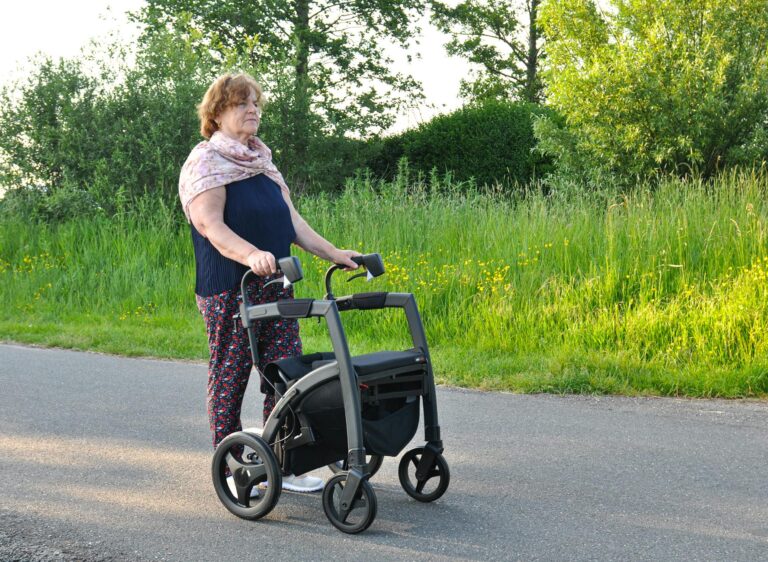Imagine waking up one day and not remembering who you are or where you are. Imagine being unable to recognize your loved ones or complete everyday tasks that used to come easily to you. This is the reality for people living with Alzheimer’s disease.
Alzheimer’s disease is a progressive brain disorder that affects memory, thinking, and behavior. It is the most common form of dementia, a general term for memory loss and other cognitive abilities serious enough to interfere with daily life. According to the Alzheimer’s Association, around 5.8 million Americans age 65 and older are living with Alzheimer’s, and this number is expected to reach nearly 14 million by 2050.
One of the most heartbreaking aspects of Alzheimer’s disease is that it not only affects a person’s memory and cognitive abilities but also their ability to take care of themselves. As the disease progresses, people with Alzheimer’s lose the ability to perform even the most basic tasks of daily living, such as bathing, dressing, and eating. This puts a significant burden on their caregivers, who often have to take on the role of full-time caretakers.
So why exactly don’t people with Alzheimer’s take care of themselves anymore? Let’s take a closer look at the impact of this devastating disease on an individual’s ability to care for themselves.
Memory Loss:
The hallmark symptom of Alzheimer’s disease is memory loss. As the disease progresses, people with Alzheimer’s struggle to remember recent events, and eventually, they may not be able to remember their own name or recognize their loved ones. This makes it challenging for them to remember to take care of themselves and complete daily tasks.
Difficulty with Tasks:
Alzheimer’s disease not only affects memory but also impacts a person’s ability to perform everyday tasks. Simple activities like dressing, brushing teeth, or preparing meals become increasingly difficult as the disease progresses. They may forget how to do these tasks or become confused about what they are supposed to do. This can lead to hygiene issues and poor nutrition, as they may forget to bathe or eat regularly.
Lack of Awareness:
As Alzheimer’s disease progresses, people with the condition may lose their sense of awareness, making it challenging for them to recognize when they are hungry, thirsty, or in pain. They may also forget to go to the bathroom, leading to accidents. This lack of self-awareness can be dangerous, as it can put them at risk for dehydration, malnutrition, and other health issues.
Changes in Behavior:
Alzheimer’s disease can also cause significant changes in a person’s behavior. They may become agitated, aggressive, or paranoid. These changes can make it difficult for caregivers to help them with daily tasks like bathing or dressing. They may become resistant to care and lash out at their caregivers, making it even more challenging for them to provide proper care.
Loss of Motor Skills:
As Alzheimer’s disease progresses, it affects a person’s motor skills, making it challenging for them to perform tasks that require coordination and fine motor skills. This can include activities like buttoning a shirt or tying shoelaces. As a result, they may struggle to dress themselves or may not be able to feed themselves without assistance.
Incontinence:
As mentioned earlier, Alzheimer’s disease can cause people to lose their sense of awareness, including the sensation of needing to go to the bathroom. This can lead to incontinence issues as they may forget to use the bathroom or not be able to make it in time. This can be embarrassing for both the individual and their caregivers and may require constant monitoring and assistance.
Depression:
Living with Alzheimer’s disease can be incredibly challenging and overwhelming. As the disease progresses and people with Alzheimer’s become more dependent on others, they may feel a sense of loss of control and independence. This can lead to feelings of depression and anxiety, which can further impact their ability to take care of themselves.
So, what can be done to help people with Alzheimer’s take care of themselves?
First and foremost, it is essential to have a proper care plan in place. This can involve working with healthcare professionals and caregivers to create a routine that ensures the individual’s basic needs are met. This can include setting reminders for meals and medication, establishing a bathing schedule, and providing assistance with daily tasks.
It is also essential to create a safe and comfortable environment for the person with Alzheimer’s. This may involve removing potential hazards and providing easy-to-use tools and equipment for daily tasks. It is also crucial to be patient and understanding with the individual as they struggle with their memory and abilities.
Caregivers also play a vital role in helping people with Alzheimer’s take care of themselves. They must take care of their own physical and mental well-being to prevent burnout and ensure they can provide the best possible care for their loved one.
In conclusion, Alzheimer’s disease not only affects a person’s memory but also their ability to take care of themselves. As the disease progresses, individuals may struggle to complete everyday tasks, have difficulty with self-awareness, experience changes in behavior, lose motor skills, and may develop incontinence issues. It is crucial to have a proper care plan in place and provide a safe and supportive environment for people with Alzheimer’s. With understanding and proper support, we can help those living with this disease lead the best possible quality of life.





